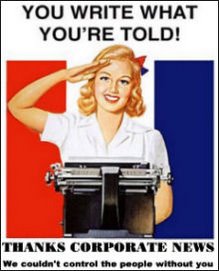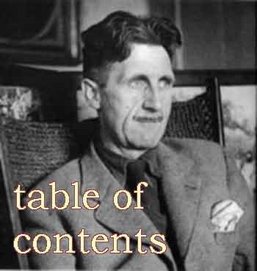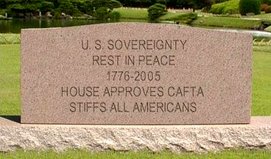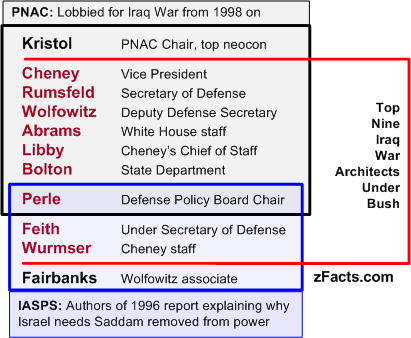April 15, 2006
The Generals' Revolt
by Patrick J. Buchanan
In just two weeks, six retired U.S. Marine and Army generals have denounced the Pentagon planning for the war in Iraq and called for the resignation or firing of Secretary of Defense Donald Rumsfeld.
Washington Post columnist David Ignatius, who travels often to Iraq and supports the war, says that the generals mirror the views of 75 percent of the officers in the field, and probably more.
This is not a Cindy Sheehan moment.
This is a vote of no confidence in the leadership of the U.S. armed forces by senior officers once responsible for carrying out the orders of that leadership. It is hard to recall a situation in history where retired U.S. Army and Marine Corps generals, almost all of whom had major commands in a war yet underway, denounced the civilian leadership and called on the president to fire his secretary for war.
As those generals must be aware, their revolt cannot but send a message to friend and enemy alike that the U.S. high command is deeply divided, that U.S. policy is floundering, that the loss of Iraq impends if the civilian leadership at the Pentagon is not changed.
The generals have sent an unmistakable message to Commander in Chief George W. Bush: Get rid of Rumsfeld, or you will lose the war.
Columnist Ignatius makes that precise point:
"Rumsfeld should resign because the administration is losing the war on the home front. As bad as things are in Baghdad, America won't be defeated there militarily. But it may be forced into a hasty and chaotic retreat by mounting domestic opposition to its policy. Much of the American public has simply stopped believing the administration's arguments about Iraq, and Rumsfeld is a symbol of that credibility gap. He is a spent force ..."
With the exception of Marine Gen. Anthony Zinni, the former head of Central Command who opposed the Bush-Rumsfeld rush to war, the other generals did not publicly protest until secure in retirement. Nevertheless, they bring imposing credentials to their charges against the defense secretary.
Major Gen. Paul Eaton, first of the five rebels to speak out, was in charge of training Iraqi forces until 2004. He blames Rumsfeld for complicating the U.S. mission by alienating our NATO allies.
Marine Lt. Gen. Gregory Newbold, director of operations for the Joint Chiefs up to the eve of war, charges Rumsfeld, Paul Wolfowitz and Douglas Feith with a "casualness and swagger that are the special province of those who have never had to execute these missions – or bury the results."
Maj. Gen. John Batiste, who commanded the Army's 1st Division in Iraq, charges that Rumsfeld does not seek nor does he accept the counsel of field commanders. Maj. Gen. John Riggs echoes Batiste. This directly contradicts what President Bush has told the nation.
Maj. Gen. Charles J. Swannack, former field commander of the 82nd Airborne, believes we can create a stable government in Iraq, but says Rumsfeld has mismanaged the war.
As of Good Friday, the Generals' Revolt has created a crisis for President Bush. If he stands by Rumsfeld, he will have taken his stand against generals whose credibility today is higher than his own.
But if he bows to the Generals' Revolt and dismisses Rumsfeld, the generals will have effected a Pentagon putsch. An alumni association of retired generals will have dethroned civilian leadership and forced the commander in chief to fire the architect of a war upon which not only Bush's place in history depends, but the U.S. position in the Middle East and the world. The commander in chief will have been emasculated by retired generals. The stakes could scarcely be higher.
Whatever one thinks of the Iraq war, dismissal of Rumsfeld in response to a clamor created by ex-generals would mark Bush as a weak if not fatally compromised president. He will have capitulated to a generals' coup. Will he then have to clear Rumsfeld's successor with them?
Bush will begin to look like Czar Nicholas in 1916.
And there is an unstated message of the Generals' Revolt. If Iraq collapses in chaos and sectarian war, and is perceived as another U.S. defeat, they are saying: We are not going to carry the can. The first volley in a "Who Lost Iraq?" war of recriminations has been fired.
In 1951, Gen. MacArthur, the U.S. commander in Korea, defied Harry Truman by responding to a request from GOP House leader Joe Martin to describe his situation. MacArthur said the White House had tied his hands in fighting the war.
Though MacArthur spoke the truth and the no-win war in Korea would kill Truman's presidency, the general was fired. But MacArthur was right to speak the truth about the war his soldiers were being forced to fight, a war against a far more numerous enemy who enjoyed a privileged sanctuary above the Yalu river, thanks to Harry Truman.
In the last analysis, the Generals' Revolt is not just against Rumsfeld, but is aimed at the man who appointed him and has stood by him for three years of a guerrilla war the Pentagon did not predict or expect.
COPYRIGHT CREATORS SYNDICATE, INC.
Subscribe to:
Post Comments (Atom)









No comments:
Post a Comment